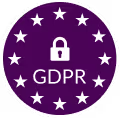Imagine this: You’re facing a high-stakes decision that could make or break your business. The data is overwhelming, the options feel endless, and the pressure to act is mounting. What do you do?
In my 25+ years of experience navigating within the life sciences—in both scientific and commercial roles—I’ve seen countless leaders struggle with moments like these. What separates those who thrive from those who flounder is not their access to data but their ability to think analytically, solve problems strategically, and make decisions confidently.
But here’s the catch: Analytical thinking isn’t just about crunching numbers. It’s about asking the right questions, uncovering root causes, and aligning decisions with long-term goals. When done right, it transforms complexity into clarity and challenges into opportunities.
The Untapped Power of Analytical Thinking
Every great leader will tell you their success boils down to the decisions they make and the problems they solve. Yet, research from McKinsey, shows that 70% of transformation initiatives fail—often because leaders focus on symptoms rather than root causes.
Take one of my recent clients, for example. They approached me frustrated by what seemed to be a miscalculated inventory issue threatening their supply chain. Instead of jumping to quick fixes, we peeled back the layers. What did we find? Communication gaps were the real culprit, not just faulty calculations. By addressing these underlying issues, we not only resolved the immediate problem but also enhanced team alignment and operational efficiency across the board.
This is the power of analytical thinking: It doesn’t just solve the immediate problem; it builds a foundation for sustainable growth and success.
The Hidden Costs of “Paralysis by Analysis”
One of the most common pitfalls I see is paralysis by analysis—the inability to make decisions due to information overload. Research shows that 35% of employees say the sheer volume of data hinders their ability to act.
I recently met with a product manager inundated with new market feedback. She felt lost about how to reposition her product. By applying a structured framework, we broke the decision into manageable steps, identified key stakeholders, and clarified the criteria needed to move forward. Not only did she position her product for success, but she also gained confidence in tackling future challenges.
The lesson? Effective frameworks don’t just simplify decisions; they empower you to act with clarity and confidence.
How to Elevate Your Problem-Solving and Decision-Making
If you’re ready to move from overwhelm to outcome, here are some of the tools I use to help clients tackle their most complex challenges:
- Root Cause Analysis: Helps uncover systemic issues by mapping out potential causes. This approach has reduced recurring problems for clients by as much as 60%.
- 6-Step Decision-Making Framework: Ideal for complex, high-stakes decisions involving multiple stakeholders. It brings structure and focus to what could otherwise feel chaotic.
- Pain-Gain Model: Perfect for balancing short-term needs with long-term goals, ensuring your decisions are aligned with your overall strategy.
- Levels of Delegation: Delegation can be challenging. However, companies that practice effective delegation are 33% more efficient, as they allow leaders to focus on high-impact work while developing their team members’ skills.
These frameworks aren’t theoretical—they’re battle-tested. They’ve helped leaders overcome analysis paralysis, align their teams, and drive results.
Cultivating Skills That Set You Apart
Mastering analytical thinking is a practice that takes time. It requires honing complementary skills like communication, prioritization, collaboration, and creativity.
Clients often tell me that our coaching sessions serve as a catalyst for sharpening these skills. And it’s not just anecdotal research from Harvard Business Review that indicates that employees who engage in reflective decision-making report higher job satisfaction and reduced stress.
Why This Matters Across Industries
While my roots are in life sciences, the principles of analytical thinking are universal. According to the World Economic Forum’s 2023 report, analytical thinking remains the #1 core skill sought by companies across all sectors. Nearly 50% of organizations are prioritizing it for reskilling initiatives. It’s not hard to see why. In an increasingly complex and data-saturated world, your ability to think critically, solve problems effectively, and make informed decisions is your greatest competitive advantage.
Whether you’re in healthcare, tech, manufacturing, or any other field, it’s the difference between riding the wave of change or being swept away by it.
Your Next Move
So, ask yourself:
- Are you addressing the symptoms of problems or tackling their root causes?
- Do you have frameworks in place for making complex decisions?
- Are you and your team equipped to navigate the information overload of today’s business landscape?
If you’re ready to elevate your decision-making and problem-solving skills, let’s connect. Together, we can transform challenges into opportunities and ideas into results that propel you and your organization forward.
Breakthroughs start with your next decision. Let’s make it a great one.
Ready to turn insights into impact?


















